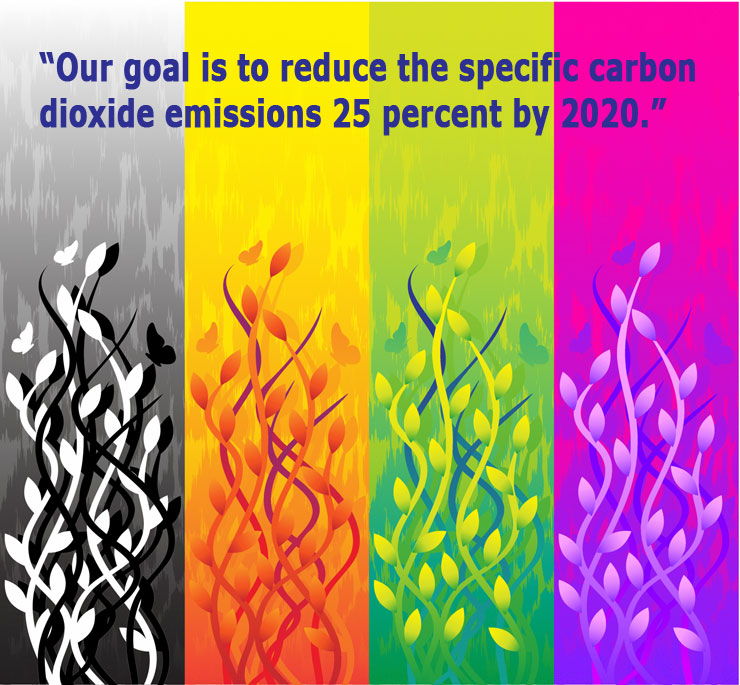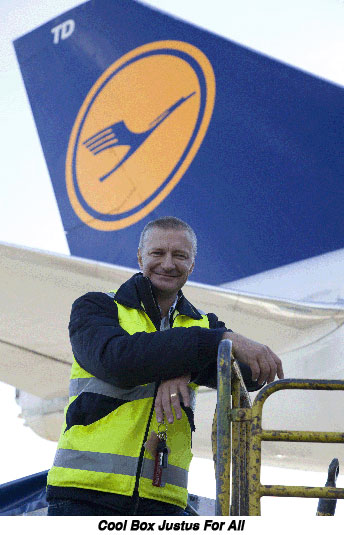

Carbon 2020 Minus 25
 Bettina
Jansen stays green in altitude and attitude when she talks of measures
taken by Lufthansa Cargo. Bettina
Jansen stays green in altitude and attitude when she talks of measures
taken by Lufthansa Cargo.
The mission is green airfreight logistics
and the German national carrier has made it clear that it’s goal
is to be “the world’s most environmentally friendly cargo
carrier,” as noted by Harald Zielinski, Head of Security and Environmental
Management.
Bettina Jansen, who studied physics, is
part of an expanded Lufthansa Cargo effort to further identify and correct
procedures all along the logistics chain, and to hear Ms. Jansen speak
of it, this is one initiative that will leave no stone unturned.
“Environmental protection is on everyone’s
mind these days.
“This is apparent as we move forward,
paying careful attention to our processes and listening to questions and
comments from our customers.
“People want to know details of carbon
dioxide emissions, emissions trading, carbon footprint and the calculation
standard for specific fuel consumption.
“But the reduction of emissions is
the major challenge we face at Lufthansa Cargo.
“Our goal is to reduce the specific
carbon dioxide emissions 25 percent by 2020.
“We are continuously working toward
this goal and have already implemented measures successfully.
“Our subsidiaries and our people are
involved top to bottom in our green effort as well.
“For example, Aerologic will be operating
eight advanced B777 freighters by the end of 2010.
“The B777 is currently the freighter
with the best environmental balance.
“We are also investing in light-weight
containers constructed of glass fiber, Kevlar, etc. that reduce weight
and lower fuel burn and CO2 emission considerably.
“These new containers are 12 to 15
kilograms lighter than the containers that they replace, with no drop
off in service life.
“Eventually, we will replace more
than 6,500 LD3s and in real numbers, that could see fuel consumption drop
by 27,500 tons, with emissions lowered 100,000 tons. Additionally, we
are working with partners on a second generation of light-weight containers.
Here we expect further fuel savings.
“Lufthansa Cargo also recently completed
a project that included step by step consideration of measures our pilots
came up with to save fuel.
“The realization of these measures
and further topics that are part of our environmental roadmap will continue
the effort to keep Lufthansa Cargo a step ahead as a green industry leader.
“But, we are, as mentioned, looking
at absolutely everything.
“It used to take about eight hours
to charge the batteries for the 240 transport vehicles that service our
Frankfurt cargo operation.
“But with new charges, the time has
been cut to six and a half hours.
“At the same time, we are utilizing
about 20 percent less energy per charging device.
“In a year, that adds up to a savings
of 365,000 kilowatt hours.
“We are addressing environmental protection
issues at every level of Lufthansa Cargo.”
Geoffrey
|









